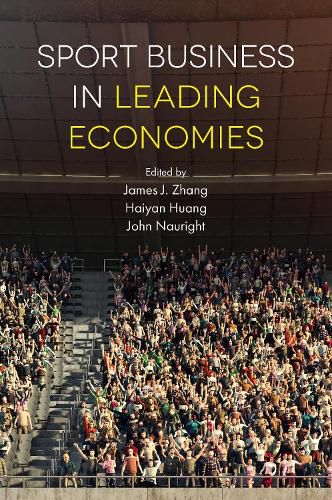Readings Newsletter
Become a Readings Member to make your shopping experience even easier.
Sign in or sign up for free!
You’re not far away from qualifying for FREE standard shipping within Australia
You’ve qualified for FREE standard shipping within Australia
The cart is loading…






From a renowned group of international scholars, this new work examines how leading economic countries use sport business, particularly individual sports events (such as the Olympics or FIFA Men’s or Women’s World Cup) as well as participant sport, in comprehensive plans toward driving and furthering economic development, raising brand awareness (country as a brand), transforming lagging communities, and enhancing travel and tourism in the country.
Comparative sport studies are fundamentally designed for cross-country and cross-cultural understanding, learning, and improvement. By recognizing the achievements, administrative procedures, and management practices of peer countries and using them as a mirror or referencing parameter, government agencies and sport organizations of a country may be able to identify areas that need improvements in their own administration and cultivate development and growth in the country’s sport industry.
Exploring how China, Japan, South Korea, Russia, the UK, Germany, the US, Canada, Brazil, South Africa, and Australia have all used sport as a catalytic agent, each chapter delves into the country’s sports industry by looking at: recent history and stages of the industry; current state including scope, magnitude, structure, governance, policies, facilities, and programs; developmental characteristics, strength, and highlights; contemporary challenges and issues; and trends of development and advancement.
$9.00 standard shipping within Australia
FREE standard shipping within Australia for orders over $100.00
Express & International shipping calculated at checkout
From a renowned group of international scholars, this new work examines how leading economic countries use sport business, particularly individual sports events (such as the Olympics or FIFA Men’s or Women’s World Cup) as well as participant sport, in comprehensive plans toward driving and furthering economic development, raising brand awareness (country as a brand), transforming lagging communities, and enhancing travel and tourism in the country.
Comparative sport studies are fundamentally designed for cross-country and cross-cultural understanding, learning, and improvement. By recognizing the achievements, administrative procedures, and management practices of peer countries and using them as a mirror or referencing parameter, government agencies and sport organizations of a country may be able to identify areas that need improvements in their own administration and cultivate development and growth in the country’s sport industry.
Exploring how China, Japan, South Korea, Russia, the UK, Germany, the US, Canada, Brazil, South Africa, and Australia have all used sport as a catalytic agent, each chapter delves into the country’s sports industry by looking at: recent history and stages of the industry; current state including scope, magnitude, structure, governance, policies, facilities, and programs; developmental characteristics, strength, and highlights; contemporary challenges and issues; and trends of development and advancement.